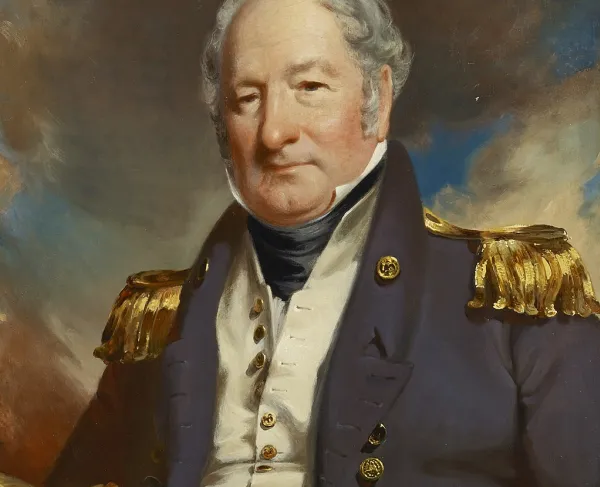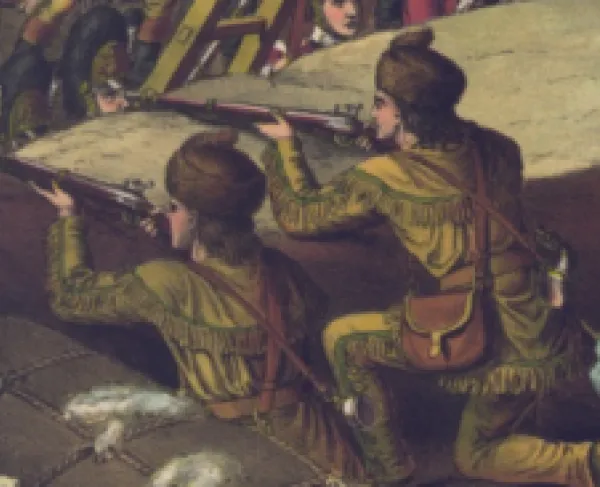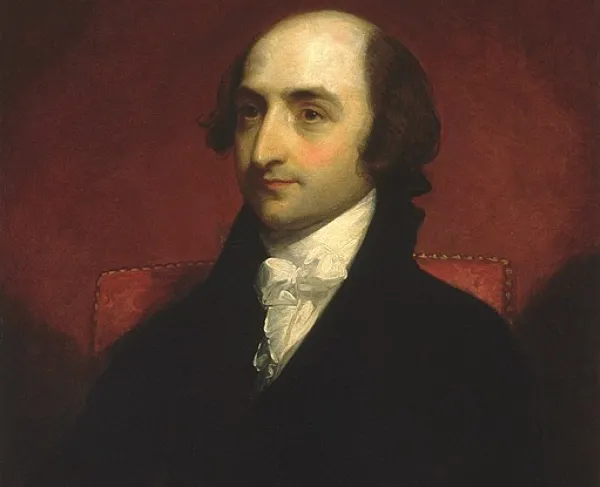William "Extra Billy" Smith
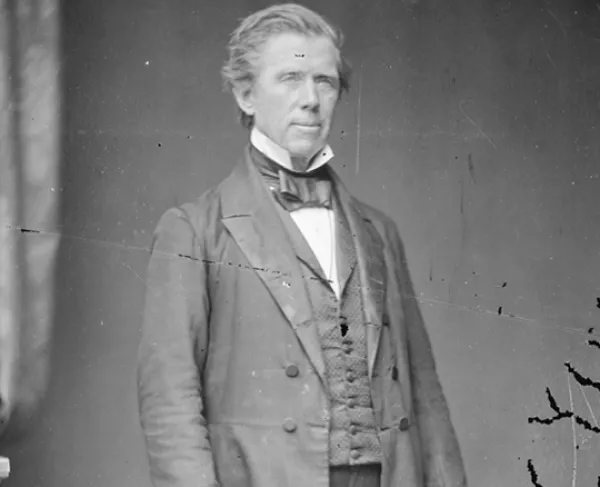
William “Extra Billy” Smith was born on September 6, 1797, in King George County, Virginia. As a young child, Smith attended private schools in his home county, as well as in Fredericksburg, Virginia. He also attended the Plainfield Academy at the onset of the War of 1812. After the War of 1812, Smith practiced law in 1818 in Culpeper, Virginia.
Dissatisfied with his career as a lawyer, Smith began a mail and passenger stagecoach line. In 1831, Smith was contracted by President Andrew Jackson to run a mail and passenger stagecoach line from Washington, D.C. to Milledgeville, Georgia the state’s capital at the time. Smith saw this as an opportunity to gain extra money from the route and established small routes branching from the mainline. These branching routes generated extra fees directly back to Smith, and he was known nationally as “Extra Billy” Smith.
In 1836, Smith was elected as a Virginia senator in the state legislature. He resigned from the Virginia Senate in 1841 to serve in United States Congress until 1846. Afterward, Smith moved to the small town of Warrenton in Fauquier County, Virginia. In 1846, Smith was elected as governor of Virginia and served until 1849 after an unsuccessful re-election campaign. Smith’s estate was not generating the revenue that he had hoped it would achieve, and like many Americans of his age, he hoped to gain his fortune in the California gold rush. Before his journey westward, Smith asked for political favors from allies within the Commonwealth. He was given $2,000 for his venture to California and to pay for estate costs for his family. Weeks before he left on March 10, 1849, his son Littleton Moore Smith passed away. Surprisingly, Smith continued his journey westward, and in April of 1849, he ventured to California.
Smith arrived in San Francisco in May of 1849. His son J. Caleb Smith followed in his father’s footsteps and practiced law in San Francisco. William frequently assisted his son on cases. By 1850, Extra Billy, too, was practicing law in California. Smith’s law firm business soared in profits and he further invested in other business ventures which were reported to be successful. In September of 1850, California became the 31st state in the Union. Smith had hoped to run for office in California, however, he was worried that if he became a politician in California that it would forfeit his Virginia office-holding rights. Despite the promise of success, Smith did not run for office in California. In September of 1850, another tragedy struck the Smith family, as Smith’s oldest son William Henry was reported missing in the modern-day Hawaiian Islands (originally called the Sandwich Islands). Smith then joined in on the effort to find his son and set sail with a private ship crew from California to China. With the search yielding no results, Smith returned to San Francisco. By 1852, after witnessing a duel between a state delegate David C. Broderick and his son J. Caleb Smith, Extra Billy decided to return to Virginia. Smith left San Francisco with a large revenue stream in California totaling $18,000 (almost $600,000 in today’s money). On December 1, 1852, Smith set sail on the Uncle Sam back to Virginia.
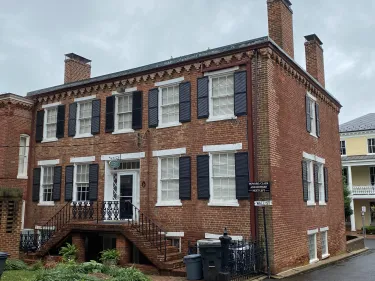
Smith returned to Virginia on December 31, 1852, and was greeted with a warm welcome from political allies and constituents in Fauquier County. Extra Billy decided to build a law firm office in Warrenton, Virginia, called the California Building close by to the Warrenton Courthouse. Meanwhile, Smith’s political allies informed him that there was a congressional election coming up and they wanted him to run for office. After only four months of being home, Smith ran for office. After winning, Smith went up to Washington, D.C., for the second time in 1853. Smith was a part of the committee on the new territories in the west and supported the concept of popular sovereignty in which states and territories voted on whether slavery should be instituted in new states and territories.
Smith remained in Washington until June of 1861 when he went with political ally John Quincy Marr to the Fairfax County Courthouse. Smith quickly requested a position within the Confederate Army and was appointed colonel of the 49th Virginia Infantry regiment just before the Battle of First Manassas. Extra Billy and the 49th Virginia held Henry Hill alongside Thomas J. Jackson where Jackson earned the nickname “Stonewall."
In early 1862, Smith briefly left the 49th Virginia and served in the Confederate Congress. He quickly returned in time for the Peninsula Campaign. At the Battle of Fair Oaks/Seven Pines, Smith was wounded. After the battle, Smith and the 49th were noted for their “characteristic coolness” as well as their “fearlessness.”
Smith’s method of command was unorthodox compared to other military leaders. Smith despised West Point graduates and the formality of war. He referred to graduates from the famed military academy as "West P'inters" and looked down upon them. He favored teaching his men common sense instead of formal tactics. Smith also distinguished himself with a strange wardrobe during battle, sporting a tall beaver hat and blue umbrella. Smith was a strange, yet effective colonel. He was noted by Major General J.E.B. Stuart as “conspicuously brave and self-possessed.” After the Peninsula Campaign, Smith and the 49th Virginia fought at Antietam. During the battle, Smith was given temporary command of a brigade within Major General Jubal Early’s division. Smith was wounded three times, and by the end of the battle he needed to be carried away from the field. On January 31, 1863, Smith was promoted to brigadier general.
Smith, now at the head of a brigade, took part in the Gettysburg Campaign. Smith was the oldest general at Gettysburg, being 66 years old at the time of the battle, he, too, was the governor-elect of Virginia; having recently won the gubernatorial election. On July 3, 1863, Smith's men fought against the Union XII Corps on Lower Culp's Hill and Spangler's Meadow. On August 30, 1863, Smith was honorarily promoted to major general. A few months later, on December 31, 1863, Smith formally resigned from his position as major general to serve as the Governor of Virginia.
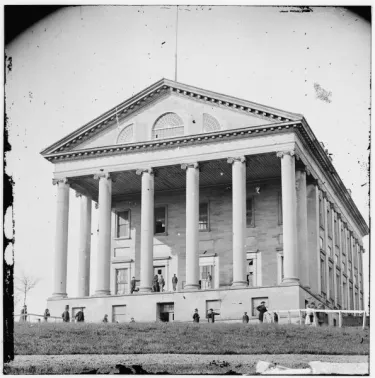
As Governor of Virginia for his second term, Smith governed Virginia much differently than he had in his first term. As Governor of the state that housed the capital of the Confederacy, Smith had to operate in tandem with the Confederate government. By 1864, Virginia was suffering from the impact of the war. The Shenandoah Valley, the Confederacy’s breadbasket, had been laid to waste by Union General Philip Sheridan. The Confederacy was becoming desperate for supplies. Smith decided to provide Virginian soldiers and civilians with much-needed food and clothing supplies first. Along with a shortage of food and clothing, there was a shortage of capable soldiers that could protect Richmond. Confederate President Jefferson Davis frequently requested soldiers to defend Richmond. Smith requested that all Confederate citizens at the age of sixteen or older muster into service. This request was not granted. By the beginning of 1865, Smith began to debate with Davis and the rest of the Confederate government that the slaves within the Confederacy should be armed to provide the Confederacy with the much-needed manpower that the Confederacy was lacking in. After Richmond fell to Federal forces, Smith went on the run. The Union set a $25,000 bounty for Smith’s capture and arrest. He was eventually arrested on May 9, 1865, and paroled on June 8, 1865.
After the war, Smith returned to his home in Warrenton, Virginia. Smith began to farm to make the necessary money to maintain his estate. However, at the age of 80, Smith was elected as a member of the Virginia House of Delegates from 1877 to 1879. After his term as a member of the House of Delegates, Smith returned to Warrenton. William “Extra Billy” Smith passed away in his home at the age of 90 on May 18, 1887. He laid in state at the Virginia Capitol, and his face was molded in a plaster cast by the sculptor Edward Valentine. Smith was laid to rest in Hollywood Cemetery in Richmond. The Warrenton Index wrote to commemorate Smith, “...this untrained soldier, holding undisciplined troops to posts of duty under deadliest fire by force of a magnetic presence and sight of the snow-white plume beneath his chapeau...Treading so many paths in life, he left no stain behind his footsteps...”
